Over the last four months, Duke instructors and staff engaged with Learning Innovation’s events centered on the topic of artificial intelligence (AI) in teaching and learning. Across the university, instructors and staff considered what role artificial intelligence will play in classrooms and everyday work. These events were popular (between 100 – 250 registrations per session) and it’s been our pleasure to connect with so many people to discuss this emerging pedagogy. Generally, opinions have shifted throughout the semester from worry to optimism about the potentials of AI. We hope to move these conversations forward as Duke continues to grapple with how to set the groundwork for productive engagement with AI in the future.
This blog post summarizes the highlights of each event so far, but you are welcome to explore all videos and slides from each event here.
Teaching and Learning in the Age of AI (Open Discussion)
In January of this year, the series began with an open discussion on the topic of ChatGPT (and other AI tools). The purpose of the session was to gain a better understanding of the experiences and needs of attendees to inform Learning Innovation’s programming throughout the semester. In that early meeting it was clear that instructors and staff were wary of the use of ChatGPT for important reasons:
- Concerns around equity and access to AI tools
- The bias of AI training materials
- Issues related to attribution, plagiarism and academic integrity.
Overall however the attendees were curious about the potential applications of AI in teaching and learning, as well as its impact on their everyday life and work (and the future careers of students). Attendees spent much of the session in disciplinary groups thinking about how to address ChatGPT in their classrooms in the immediate term and identify what information they needed next to be successful. Themes emerged that set Learning Innovation’s goals for the semester: that we should work to level up the Duke community in understanding how to use AI and exploring its potential uses in research and teaching. Watch a recording of the open discussion.
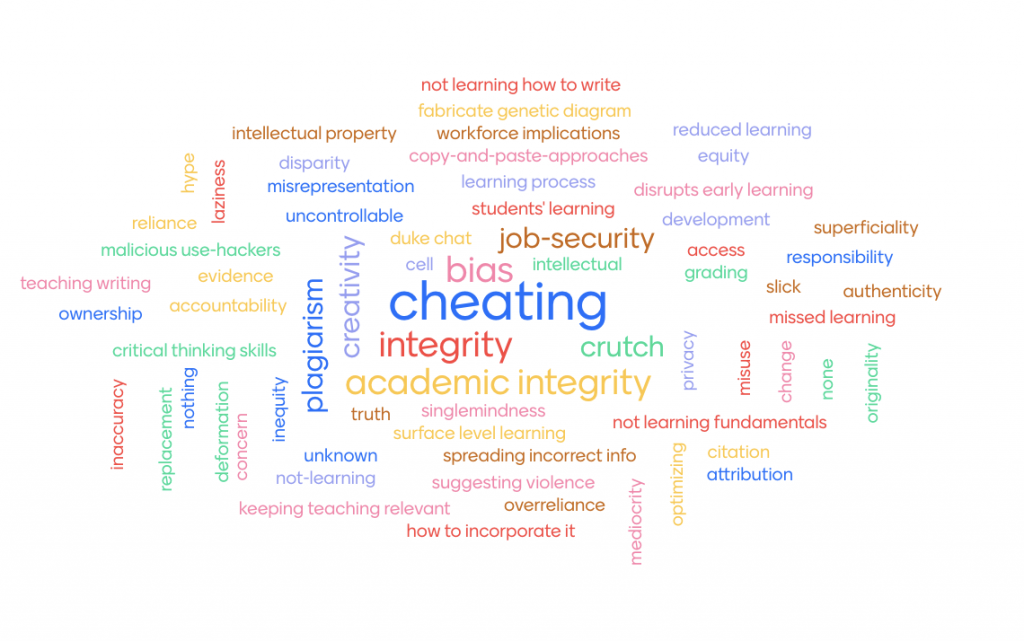
How to Use ChatGPT and Midjourney

In the next workshop, faculty and staff gathered with two members of Learning Innovation’s Learning Technologies Services to explore two AI tools up close. Chris Lorch, who leads instructional technology pilots and integrations, demonstrated ChatGPT. He provided detailed instructions about the signup process and also explained to attendees what varieties of prompts can be answered by ChatGPT, plus how to refine prompts to get more precise information from the algorithm. The associate director of the team, Michael Greene, led attendees through the AI image generator Midjourney. This tool is trained on images across the web (and can alter your own image) to create original images based on text prompts that describe the desired subject matter, art styles, color, etc. Attendees got a sense of the range of images Midjourney can create and learned that it is possible to fine-tune images to personal specifications. View the introduction to ChatGPT and Midjourney.
ChatGPT for Academic Research: the Good, the Bad, and the Ugly.
In March Hannah Rozear, a Research & Instructional Services Librarian, led a workshop about ChatGPT as a research tool. She went into detail to explain the ways in which ChatGPT fabricates sources and citations in order to answer a question to completion. Instead of expecting ChatGPT to be a helpful when seeking appropriate supporting evidence for an argument, Hannah suggested that ChatGPT is instead a good starting point to speak with students about digital literacy. Its output can be compared and contrasted with other techniques for researching online. Finally, she pointed out the tasks ChatGPT does well, specifically in helping to brainstorm ideas around a topic and looking for basic reading lists. Watch Hannah Rozear’s workshop.
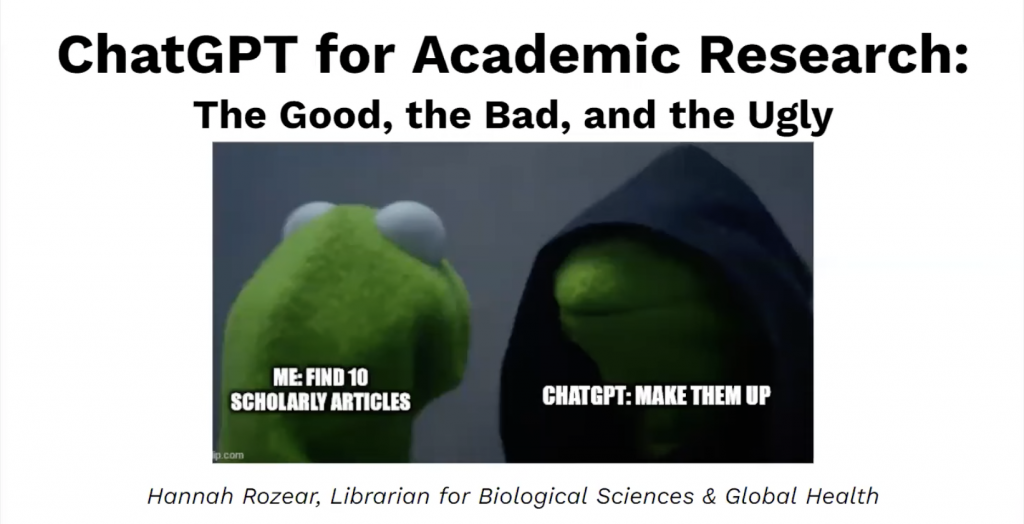
Emerging Pedagogies Symposium
The Learning Innovation and Digital Education team held a half-day event on “Rethinking Learning in the Age of Artificial Intelligence (AI)”, with particular focus on tools such as ChatGPT on April 24. The start of the symposium featured Dr. Ashok Goel, Professor of Computer Science and Human-Centered Computing at Georgia Institute of Technology, who described the limitations, cautions and promise of AI in education. He spoke eloquently about the potentials he sees in using the algorithm of ChatGPT to improve tutoring applications. Dr. Goel predicted that the newest developments in AI will help distribute learning to a wider audience than is currently possible, encourage academia to reconsider current standards of critical thought and move humanity and AI to be closer collaborators. Watch Dr. Goel’s presentation.
The 130 Duke staff and faculty in attendance spent the lunch hour brainstorming how Duke can support student, staff and students in the future to help them learn, teach and work with AI. In the afternoon, Dr. Goel was joined by Dr. Matthew Hirschey, Director of the Center for Computational Thinking at Duke, plus Dr. Yakut Gazi, the Vice Provost for Learning Innovation and Digital Education, for a fireside chat (watch it here) about the opportunities that AI might provide. The experts answered questions about what excites them about ChatGPT, how universities should prepare for the use of AI, and what the future of higher education may look like due to advances in AI. Notably, Dr. Hirschey encouraged the audience to think of AI like ChatGPT as a tool for, not a threat to, learning. Specifically, that we should consider how academia can teach students how to use AI tools ethically and effectively. To that end, Dr. Hirschey is planning a University 101 course to run this fall called Digital U that will attempt to do just that, educate students on the use of AI.
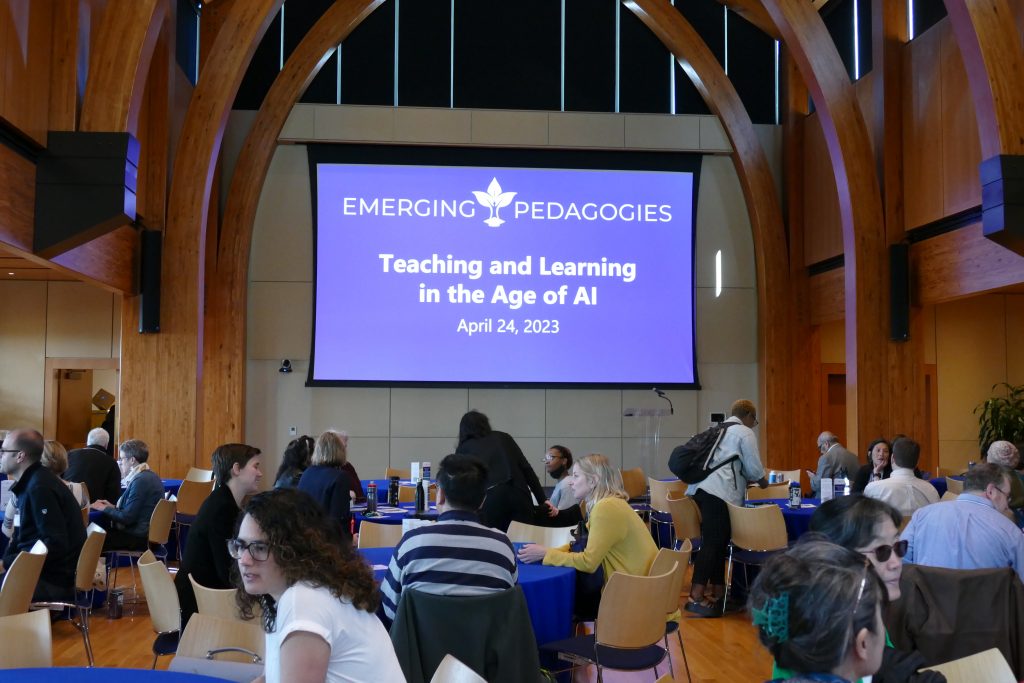
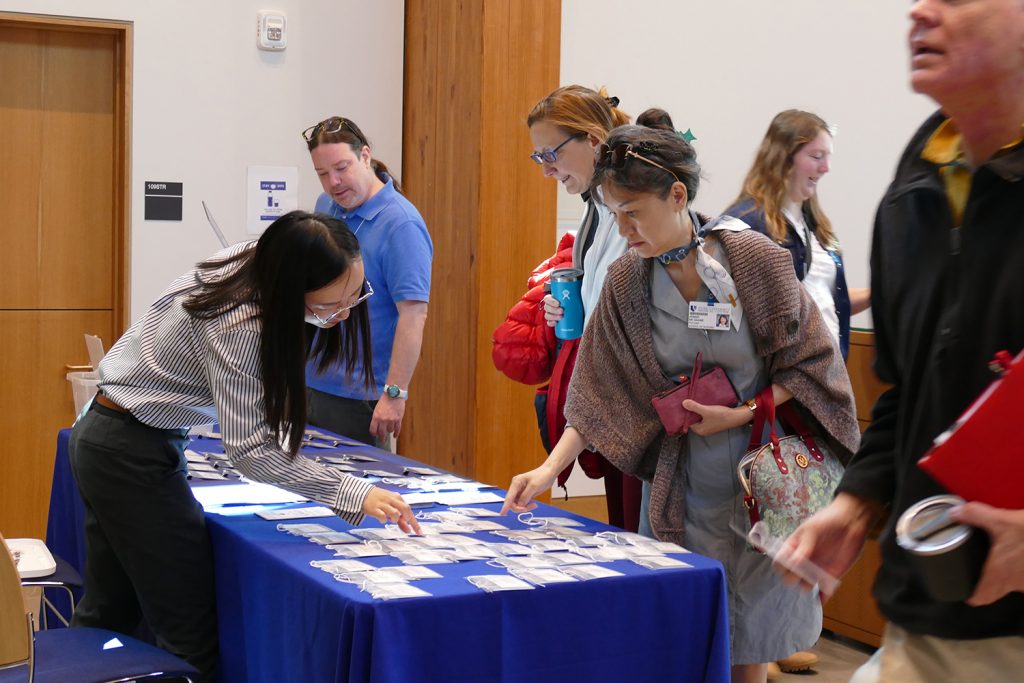
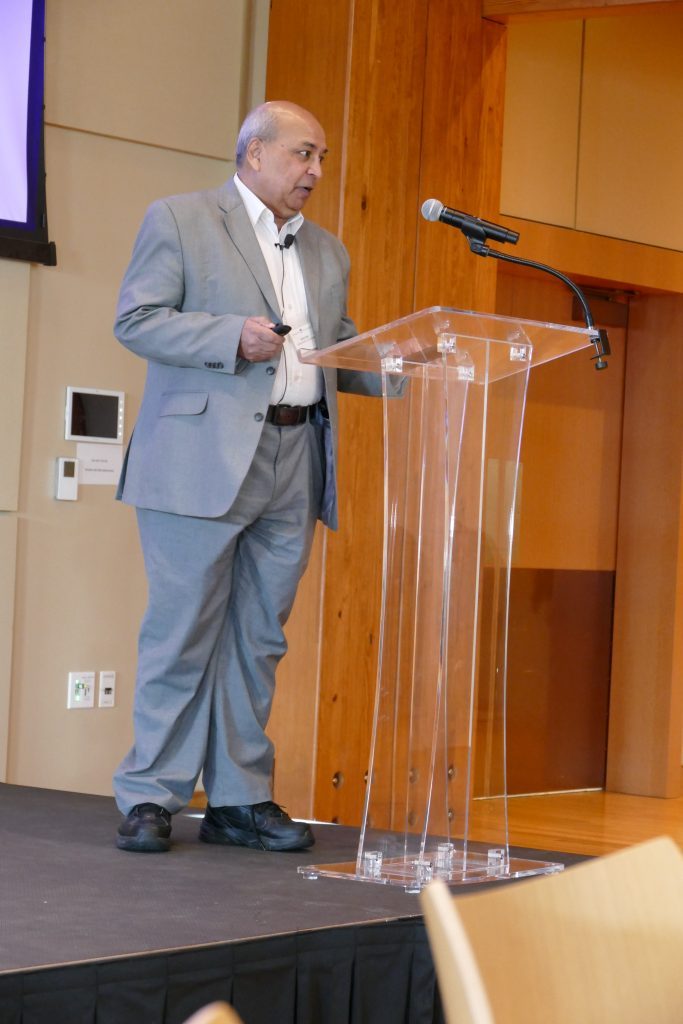
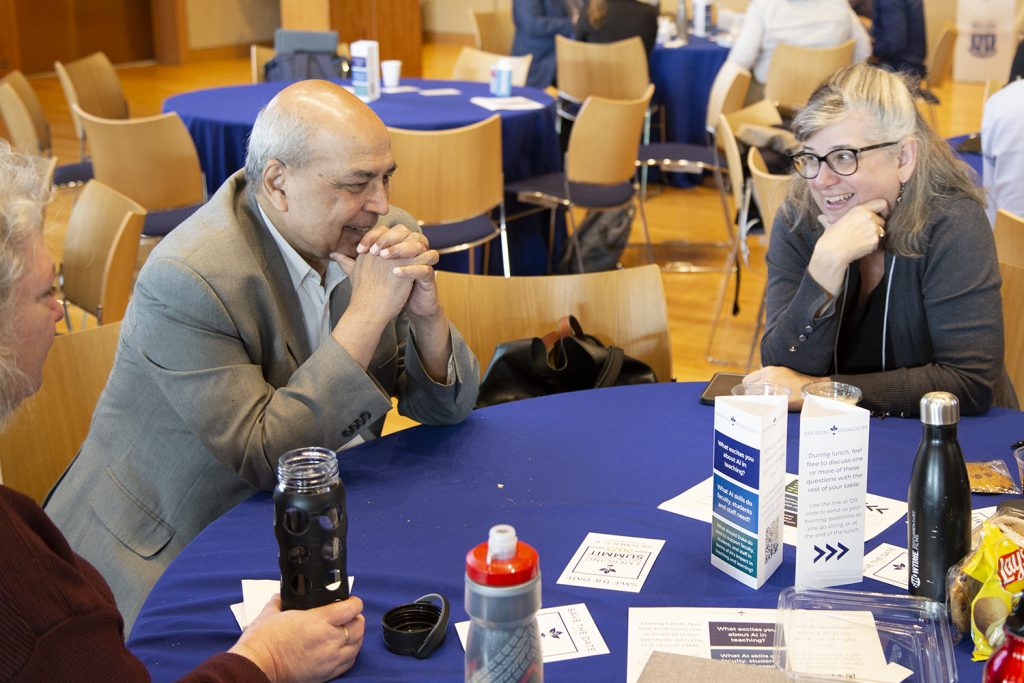
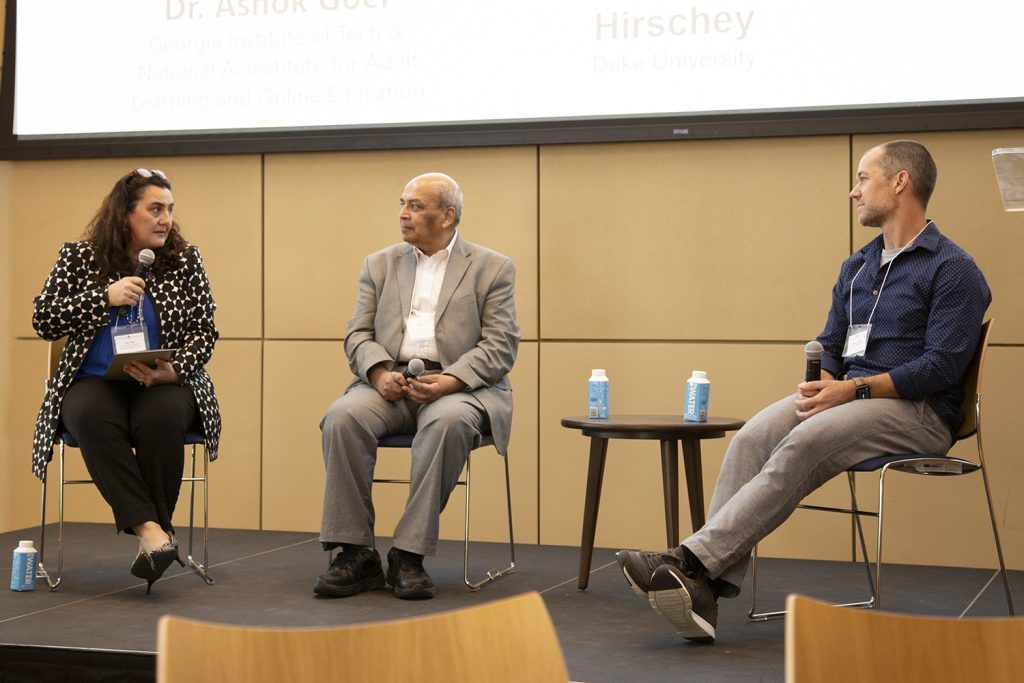
AI and Assessments: A Practical Guide
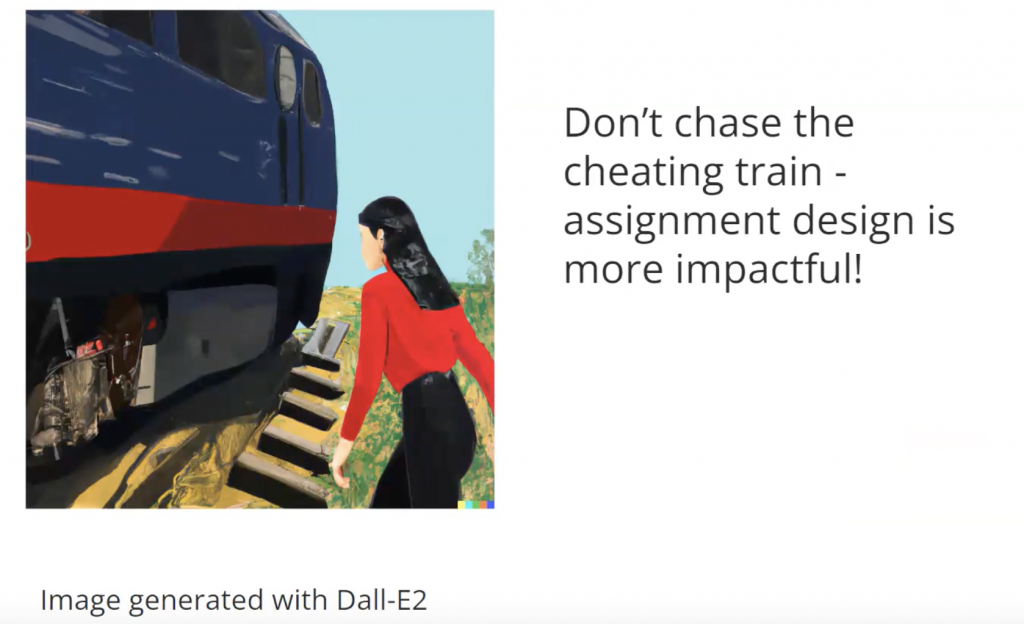
The last event of the semester was a workshop presented by Jess Dewey and Elise Mueller, staff of Learning Innovation who consult with faculty on pedagogy and technology. They presented thoughts about and examples of how to design assignments that incorporate AI (rather than ban it or plan assignments to circumvent it.) The attendees were encouraged to think in depth about their goals for using AI in their classrooms and how to design such assignments in terms of both instructions and feedback. Many example assignments were offered as models for teaching students writing, coding, brainstorming and creativity with the assistance of AI. The last part of the workshop was reserved for Dr. Jon Reifschneider, the Director of the AI for Product Innovation, Master in Engineering Management. He demoed his learning management system, Classwise, which leverages the content of his course to create an adaptive learning system powered by AI. View the workshop now.
This Summer and Beyond
Learning Innovation views the Spring 2023 semester as the first exploration of the topic of artificial intelligence in teaching and learning at Duke. It’s exciting that there are many instructors and staff now experimenting with AI in their jobs and in their classrooms. They will be important partners in continued conversations on campus. Plus, Duke is lucky enough to have researchers, educators and centers who have been working with AI for decades who can help the university frame its future steps. In the fall, we will be holding the Emerging Pedagogies Summit that will explore AI and other cutting edge topics in education – sign up for our monthly newsletter to be alerted when registration for that event opens. We encourage you to contact us with questions and comments as we make plans to support you in the next few months.

